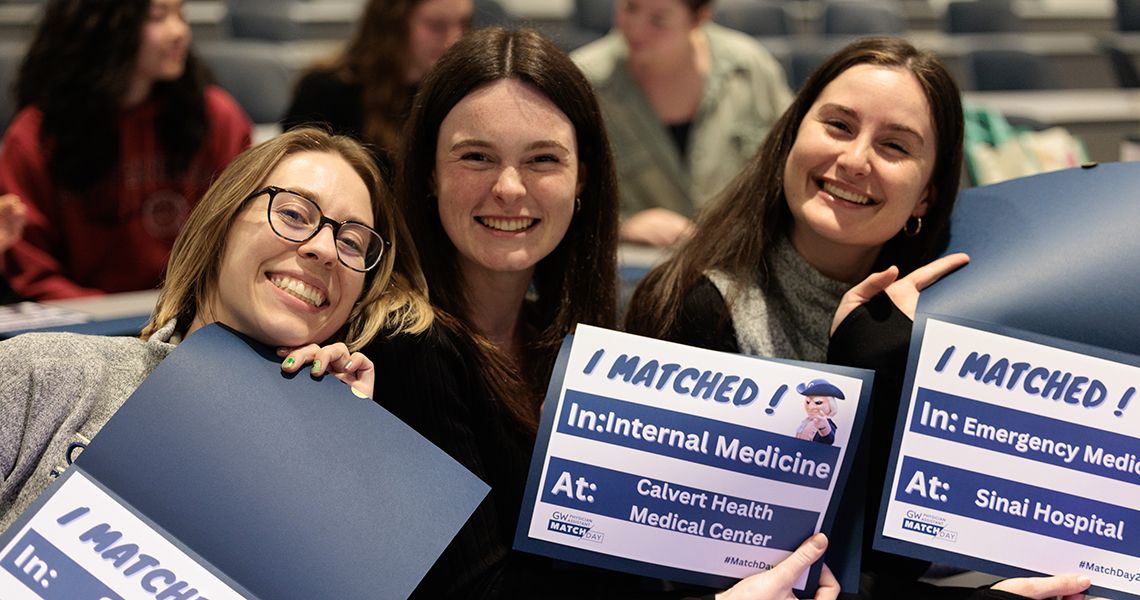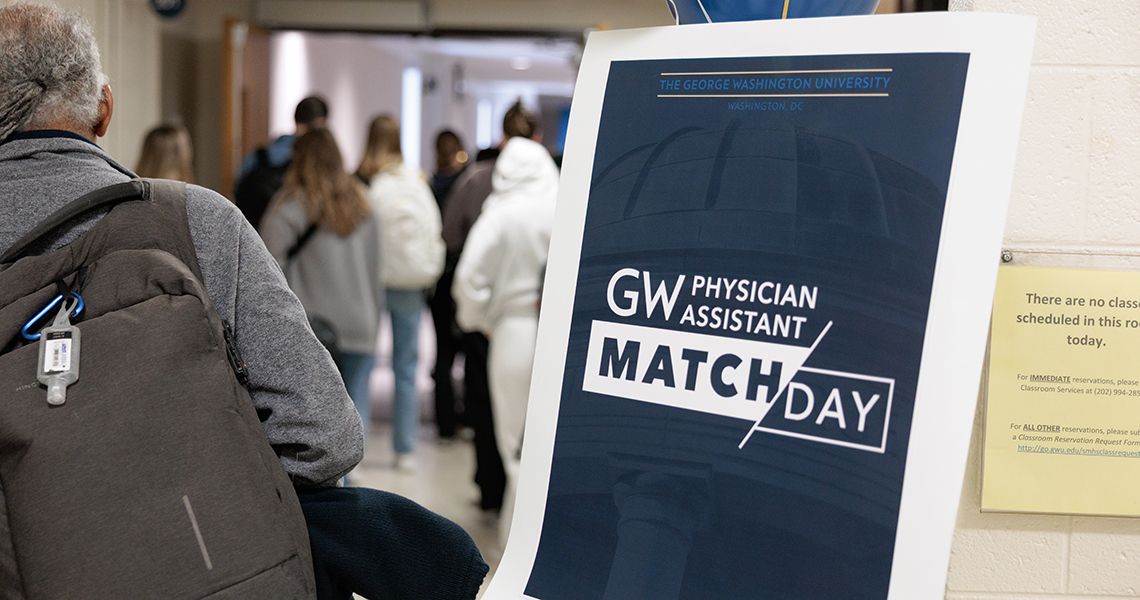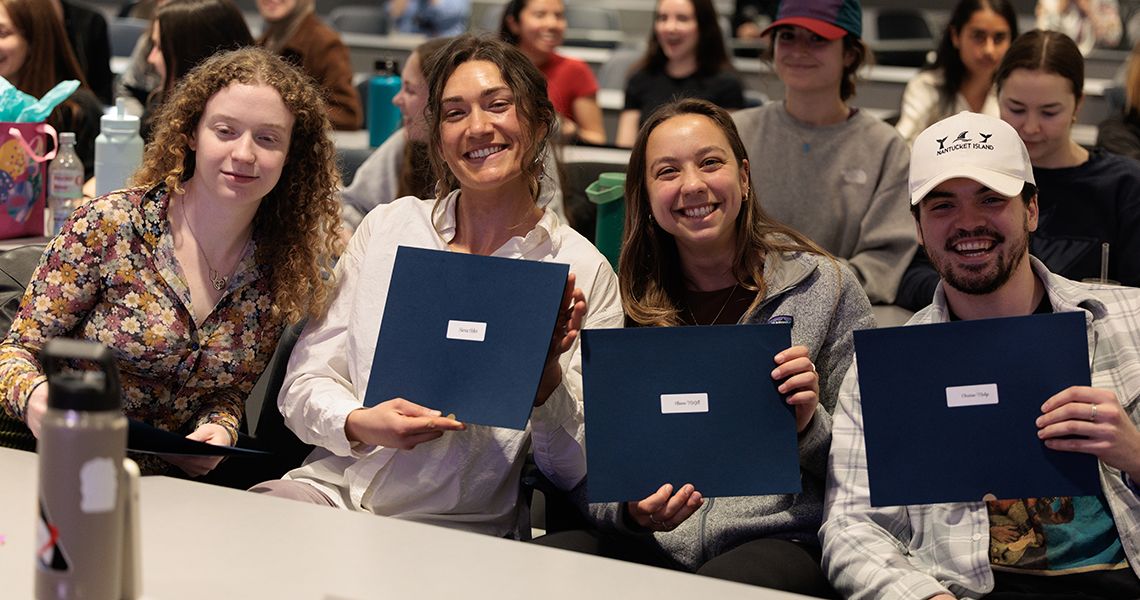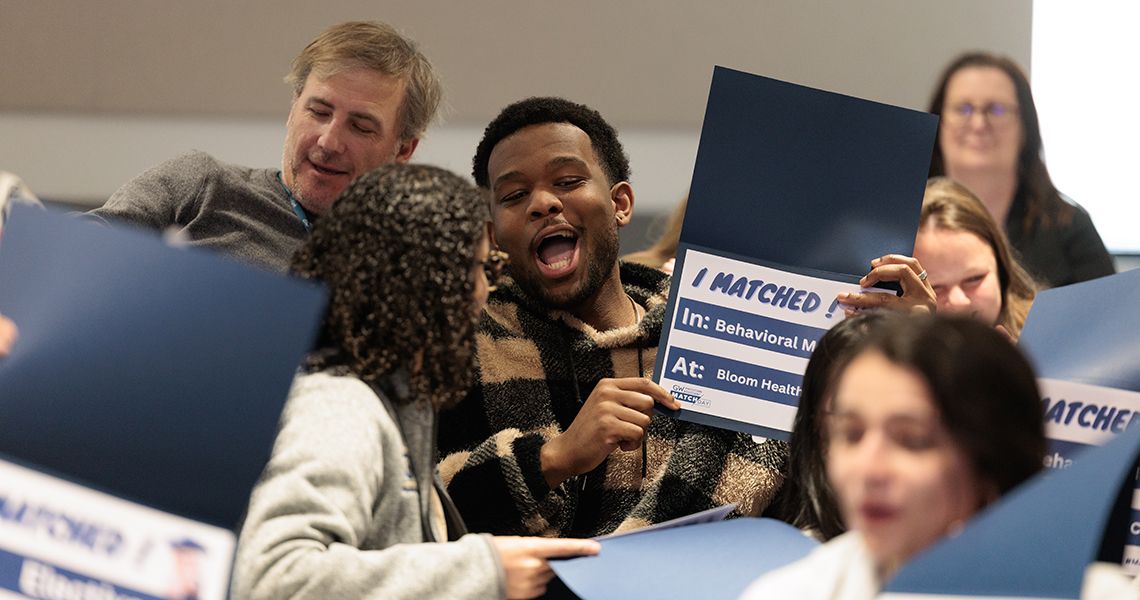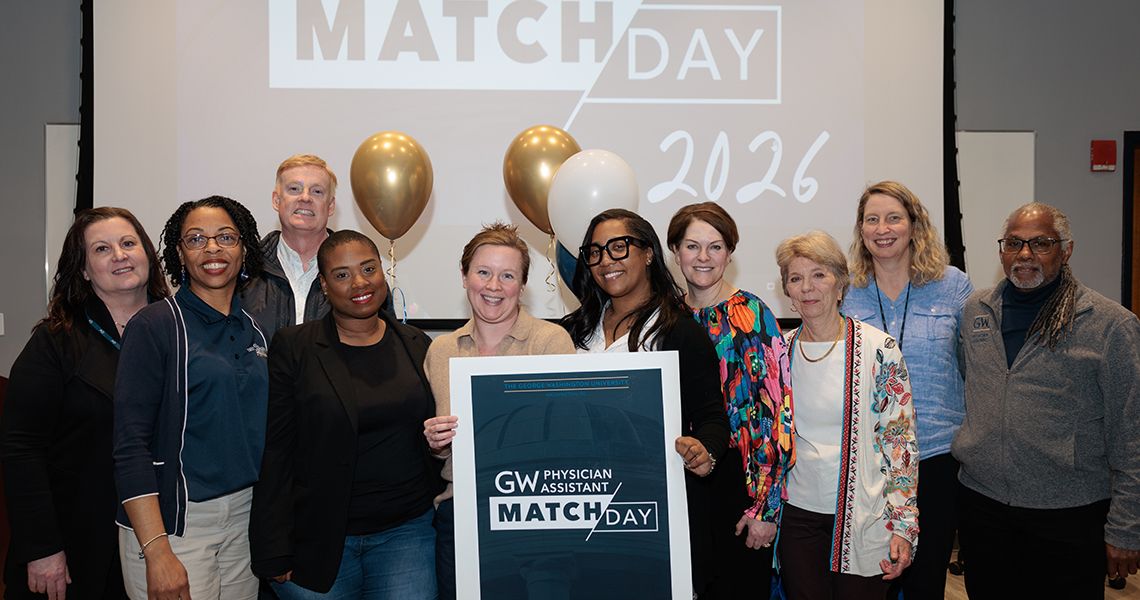An air of excitement, anticipation, and perhaps a touch of nervousness, filled the Ross Hall lecture hall on March 14, as 58 members of the George Washington University (GW) School of Medicine and Health Sciences Physician Assistant (PA) Class of 2026 gathered for a pivotal moment in their medical journey: PA Match Day. This event marked the conclusion of the rigorous didactic phase of their program and the beginning of their year-long clinical rotations — an essential step toward becoming certified Physician Assistants.
For the GW PA program, one of the nation’s leading institutions according to U.S. News & World Report, the day was more than just a ceremonial event; it was the culmination of nearly two years of intensive study compressed into 10 months. The students, who had to earn a minimum 3.0 GPA just to advance to this point, will now apply their knowledge in real-world clinical settings at more than 200 partner sites, including hospitals, health centers, and clinics throughout Washington, D.C., Maryland, Virginia, and even sites as far away as Alaska.
“This is an exciting time because it’s a tough year, and the students go through a lot,” said John “Bart” Gillum, DSc, PA-C, PA program director and assistant professor of PA studies. He described the pace of the PA curriculum, which packs much of the information covered over the first two years of medical school into half the time. “They get to put what they’ve learned into practice. It’s a whole new set of challenges ahead of them, but not the challenges they’ve already faced.”
The clinical rotations — which include six-week stints in fields like emergency medicine, surgery, pediatrics, and family medicine — allow students to experience hands-on learning in environments where they will engage with patients directly.
A Humanistic Approach to Medicine
Among the students matched for clinical training is Luke Guonjian-Pettit, a Towson, Maryland, native and Co-President of the James K. Tolton Society, GW’s student chapter of the American Academy of Physician Assistants. Guonjian-Pettit will begin his rotations in interventional radiology at the George Washington University Hospital. Guonjian-Pettit, whose mother works in an emergency department and whose father is a professor of religion and philosophy, felt drawn to health care from an early age. His academic background in the hard sciences, combined with his deep-rooted desire to provide compassionate, patient-centered care, has led him to a rare opportunity in his initial rotation.
“I had a couple of options, but interventional radiology really stood out,” Guonjian-Pettit said. “It’s a one-in-a-million opportunity, and I couldn’t let it pass by.”
For Guonjian-Pettit, this journey has been a process of discovering new areas of medicine that resonate deeply with him. “Going into PA school, I had some ideas about what I wanted to do, but what I’ve learned is that there are areas of medicine I never even considered, and some of them are areas I’m really passionate about now.”
A Focus on Public Health and Patient Advocacy
Classmate and Tolton Society Co-President, Sierra Acker will begin her clinical year with an Emergency Medicine rotation at the Washington D.C. Veterans Affairs Medical Center.
“I’m excited about emergency medicine because you never know what’s going to come through the door,” the St. Louis, Missouri, native, said, noting the wide range of cases she will be exposed to.
Acker, who is also pursuing a dual MPH/PA degree, is preparing for a unique challenge: a rural family medicine rotation in a clinic on a remote island off the coast of southeast Alaska. She self-identified the rotation site, choosing a rural clinic run by a GW SMHS alumna.
“Going from emergency medicine in an urban setting to a rural clinic is going to be a really interesting contrast,” she said.
Integrating Medicine and Holistic Care
Eva Parsa, a San Diego, California, native, will be pursuing an elective in orthopedics, building on her prior experience in pediatric orthopedics. Parsa, who serves as the Diversity, Equity, and Inclusion (DEI) representative for the Tolton Society, chose GW for its focus on advocacy and its collaborative environment.
“I’m drawn to the PA profession because I want to spend meaningful time with my patients,” Parsa shared. “There’s so much more to health care than a 20-minute appointment. I want to give patients the attention they deserve.”
Looking ahead, Parsa hopes to open an integrative medicine clinic with her sister, an internal medicine physician, blending Western medicine with holistic practices focused on prevention, nutrition, and lifestyle medicine.
Finding a Calling in Hematology/Oncology
Brittney Deroehn, from Old Lyme, Connecticut, and a graduate of Northeastern University in Boston, will start her clinical year with an elective rotation in hematology/oncology at GW Hospital. Deroehn is excited to explore where she fits within the vast field of medicine.
As a member of GLAMA, the national organization advocating for LGBTQ+ health equity, Deroehn is also working to improve inclusive charting for transgender patients. “I hope to work in a place that is open to different gender identities,” she said. “It’s important to me that my future practice is accepting of all people.”
A Blank Slate for New Opportunities
Rodney Sadberry, a Boston native with a background in neurosurgery and orthopedic surgery, will pursue a behavioral medicine rotation at Bloom Health Center in Northern Virginia. Sadberry, who has significant healthcare experience, is approaching his clinical year with an open mind.
“I’m intentionally going into the clinical year with a blank slate,” he said. “I want to experience everything and see where I resonate. I love the idea of discovering something new that I didn’t expect to love.”
